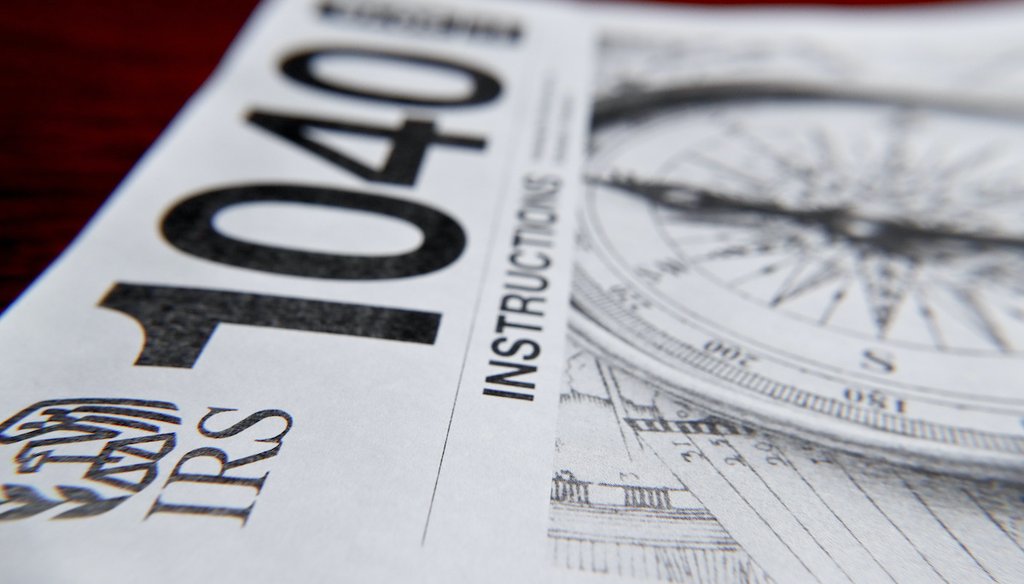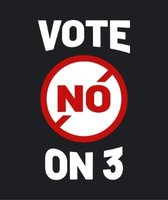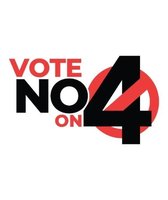Stand up for the facts!
Our only agenda is to publish the truth so you can be an informed participant in democracy.
We need your help.
I would like to contribute

1040 tax forms instructions printed from the Internal Revenue Service web page. (AP)
If Your Time is short
-
A PPP loan isn’t taxable income.
-
Generally, businesses are not required to report that they received a PPP loan. However, they would need to report certain information if the loan was forgiven and if they are deducting related expenses, an Internal Revenue Services spokesperson told PolitiFact.
-
PPP loan expenses are still tax-deductible.
At the beginning of the COVID-19 pandemic, the U.S. government rolled out a loan relief program to help small businesses impacted by the crisis.
Businesses have been able to use these Paycheck Protection Program loans to maintain payroll, hire back employees who may have been laid off, and cover applicable overhead expenses.
More than 11.4 million loans totaling nearly $800 million were sent out, according to the Small Business Administration. The loans are offered at low interest rates and with the opportunity for forgiveness.
Some social media posts are causing confusion about the tax implications of those loans.
"PPP LOANS MUST BE REPORTED ON THE TAX RETURN smh the GAME just changed!!" one Facebook post said.
Sign up for PolitiFact texts
The post was flagged as part of Facebook’s efforts to combat false news and misinformation on its News Feed (read more about our partnership with Facebook).
Comments on the post show that people interpreted it at least two ways:
-
Businesses need to acknowledge on their tax returns that they received a loan.
-
Businesses now have to report the loan proceeds as taxable income.
People with questions or concerns about their unique situation should speak with a tax professional for guidance. But here are some general facts about the PPP loans.
First, it's worth noting that there’s a difference between loan proceeds and forgiven loans.
Because a loan means you're borrowing money from a lender or bank, they aren't considered income and are therefore not taxable.
Typically, for loans that are forgiven, canceled, or discharged, the canceled debt is taxable. But this is not the case for PPP loans, which are tax-exempt whether or not the loan was forgiven.
TaxAct, a tax preparation software company, explained that forgiven PPP loans are not considered cancellation-of-debt income, so those proceeds should not be reported on tax returns.
This applies to all taxpayers, whether the business is a sole proprietorship, single-member LLC, partnership, multi-member LLC, corporation, or any other entity type.
When it comes to reporting loans, businesses are generally not required to report that they received the loan. However, they would need to report certain information if the loan was forgiven, said Eric Smith, a spokesperson for the Internal Revenue Services.
Smith pointed to IRS filing instructions that say: "The forgiveness of a PPP Loan creates tax-exempt income, so although you don't need to report the income from the forgiveness of your PPP Loan on Form 1040 or 1040-SR, you do need to report certain information related to your PPP Loan."
Reporting can happen in different ways depending on how the business is organized. Certain businesses, like sole proprietors, need to file a Schedule C tax form with their tax return to report profit or loss. That’s where the loan information would go if the business is deducting related expenses.
In addition, with the passing of the Consolidated Appropriations Act of 2021, expenses paid with PPP loan proceeds are tax-deductible, whether or not the loan was forgiven.
Our Sources
Facebook post, Feb. 7, 2022
Small Business Administration, Paycheck Protection Program, Accessed Feb. 9, 2022
Small Business Administration, PPP data, Accessed Feb. 9, 2022
Tax Act, Paycheck Protection Program, Accessed Feb. 9, 2022
U.S. Department of the Treasury, Paycheck Protection Program, Accessed Feb. 9, 2022
Email interview, Eric Smith, spokesperson with the Internal Revenue Service, Feb. 9-10, 2022














































